
TAMEST 2022 Annual Conference speakers shared how Texas can build the vibrant, healthy communities of tomorrow and address topics like health care, housing, infrastructure and infectious disease.

Currently, in the community, she serves as the Secretary of the municipal board for Pre-K 4 SA, a citywide early childhood initiative for San Antonio, and is a board member of the CAST Network of career-themed high schools in San Antonio. She is also a member of the Governing Board of the Holdsworth Center, a statewide educational leadership center for Texas, serves on the Board of Trustees of Trinity University, and on the executive board of the San Antonio ISD Education Foundation. Additionally, she supports, through board membership, both Early Matters – San Antonio and the UP Partnership.
Prior to returning to San Antonio, Shari was the Executive Director of Education at the Asia Society and Chief Executive Officer of the Asia Society International Studies Schools Network. She also served as the principal of a public magnet school in San Antonio, Texas – the International School of the Americas – and was named the Texas High School Principal of the Year for 2004 by the H-E-B Excellence in Education Awards. In 2004, her school was awarded the Goldman Sachs Prize in International Education. Her background also includes service as an elementary teacher and administrator as well as teaching on the MAT faculty of Trinity University.
Shari earned her bachelor’s and master’s degree from Trinity University and her doctorate from Teachers College–Columbia University.
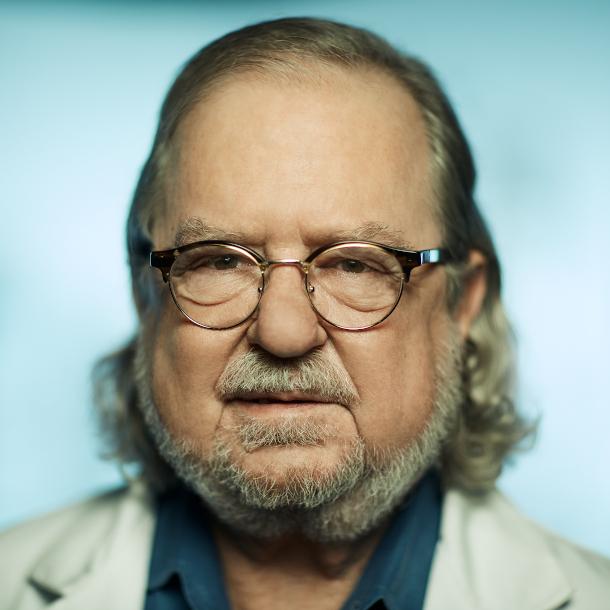
Nobel Laureate James P. Allison, Ph.D. (NAM, NAS)
Regental Professor and Chair
The University of Texas MD Anderson Cancer Center

Maria Elena Bottazzi, Ph.D.
Associate Dean, National School of Tropical Medicine
Baylor College of Medicine
Maria Elena Bottazzi, is Associate Dean of the National School of Tropical Medicine, Professor of Pediatrics, Molecular Virology & Microbiology, Division Chief of Pediatric Tropical Medicine and Co-director of Texas Children’s Center for Vaccine Development at Baylor College of Medicine in Houston and Distinguished Professor in Biology at Baylor University in Waco.
She is an internationally recognized tropical and emerging disease vaccinologist, global health advocate and co-creator of a patent-free, open science COVID-19 vaccine technology that led to the development of Corbevax, a COVID-19 vaccine for the world. She pioneers and leads the advancement of a robust infectious and tropical disease vaccine portfolio tackling diseases such as coronavirus, hookworm, schistosomiasis, and Chagas that affect disproportionally the world’s poorest populations. She also has established innovative partnerships in Latin America, Middle East and Southeast Asia, making significant contributions to innovative educational & research programs, catalyze policies and disseminate science information to reach a diverse set of audiences.
As global thought-leader she has received national and international highly regarded awards, has more than 280 scientific papers and participated in more than 250 conferences worldwide. She is Member of the National Academy of Science of Honduras and Emerging Leader in Health and Medicine of the National Academy of Medicine in the US.
Dr. Bottazzi is a Fellow of the American Society of Tropical Medicine and Hygiene (ASTMH), the Executive Leadership in Academic Medicine (ELAM), the Leshner Leadership Institute for Public Engagement and Sr. Fellow of the American Leadership Forum (ALF). Forbes LATAM in 2020 and 2021 selected Dr. Bottazzi as one of 100 Most Powerful Women in Central America. Dr. Bottazzi has served in several National Academies Ad-hoc Committees and serves as Co-chair of the Vaccines and Therapeutics Taskforce of the Lancet Commission on COVID-19. In 2022, alongside Dr. Peter Hotez, she was nominated by Congresswoman Lizzie Fletcher of Texas for the Nobel Peace Prize.
Dr. Bottazzi obtained her bachelor’s degree in Microbiology and Clinical Chemistry from the National Autonomous University of Honduras and a doctorate in Molecular Immunology and Experimental Pathology from the University of Florida. Her post-doctoral training in Cellular Biology was completed at University of Miami and Pennsylvania, where afterwards worked at the George Washington University prior to relocating to Texas.

Craig Boyan
President
H-E-B
Slides and Video Not Available
Craig joined H-E-B in 2005 as Chief Strategic Officer and was an advisor to H-E-B for two years before joining the company.
Prior to H-E-B, Craig worked at the Monitor Company, a global consultancy based in Cambridge, MA. Craig founded and ran Monitor’s New York office.
He graduated from Harvard College, cum laude in economics, and he was a member of the Harvard crew team. He also received an MBA from Columbia Business School.
Craig is a member of the Board of the Food Marketing Institute (FMI) and a member of the FMI Executive Committee. He also served as the Chairman of the 2016 FMI Midwinter Executive Conference. Craig serves as the Chairman of the San Antonio Economic Development Foundation; he is also on the Board of Trustees for Texas Biomedical Research Institute. Craig is also Chairman of the Board for Junior Achievement of South Texas, and a member of the Mayor’s Education and Development Workforce Leadership Team. He is a past member of the United Way Executive Committee and, served as the General Campaign Chair for the 2015 United Way Campaign.
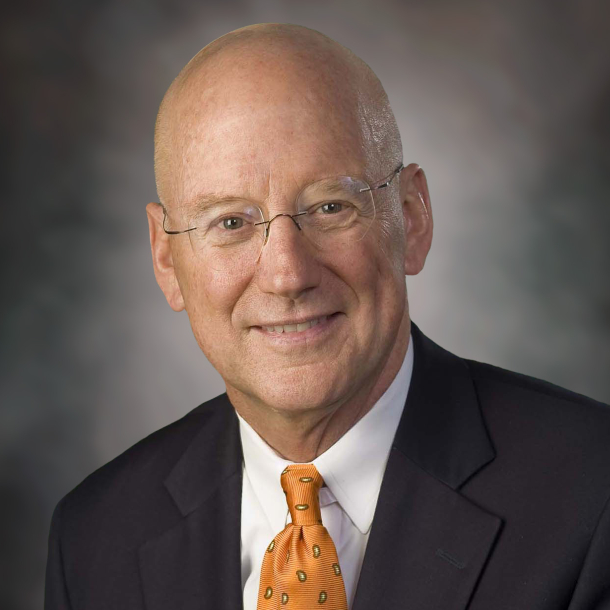
William L. Henrich, M.D., M.A.C.P.
President and Professor of Medicine
John P. Howe, III, MD, Distinguished Chair in Health Policy
UT Health San Antonio
UT Health is a dynamic and rapidly expanding health science center with five professional schools (medicine, nursing, dentistry, health professions and graduate school of biomedical sciences) with missions of education, clinical care, research and community service. With a budget of 1.1 billion dollars, a work force of 7,100 and a research portfolio of approximately $325 million, UT Health is quickly rising in prominence among academic medical centers in the United States.
Henrich received his undergraduate degree from Columbia University and his medical degree from Baylor College of Medicine, and later completed a residency in Internal Medicine at The University of Oregon Medical School and a fellowship in Nephrology at The University of Colorado School of Medicine.
During his career, Henrich has served as Professor of Medicine at The University of Texas Southwestern School of Medicine, as Professor and Chair of Medicine at the Medical College of Ohio, and as the Theodore Woodward Professor and Chairman of the Department of Medicine at The University of Maryland School of Medicine in Baltimore. He became the Dean of the School of Medicine and Vice President for Medical Affairs at UT Health San Antonio in 2006 prior to being selected as its President in 2009. He is the inaugural holder of the John P. Howe, III, M.D., Distinguished Chair in Health Policy.
He is the author of over 350 original articles and chapters, and the founding editor of the popular dialysis textbook, “Henrich’s Principles and Practice of Dialysis”. His current areas of interest are in improving dialysis and vascular renal disease.
An elected member of several prominent research societies, Henrich also served as President of the American Society of Nephrology. He is passionate about mentoring students, residents and young physicians and has received teaching accolades in every institution in which he has served.
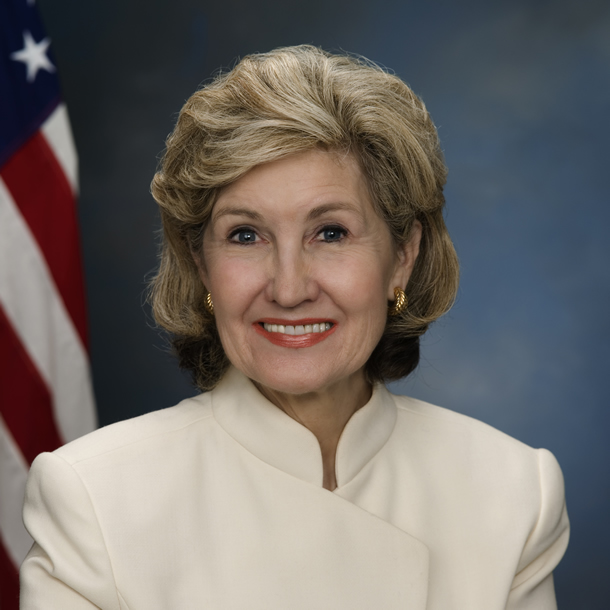
Kay Bailey Hutchison
Former United States Senator, 1993-2013
Former United States Ambassador to NATO, 2017-2021
In January 2021, she stepped down from a more than 3 year term as U.S. Ambassador to The North Atlantic Treaty Organization (NATO) in Brussels, Belgium, where she managed the 250 person mission. In her service to NATO, she maintained US leadership in the 30 Ally Alliance and negotiated a rebalancing of contributions from allies, resulting in the annual savings of $140 million dollars for American taxpayers.
Prior to her public service as U.S. Ambassador, she was an attorney with Bracewell, a business and energy law firm headquartered in Houston, Texas. She also served as a member of the Bank of America Global Advisory Board and as a contributor to the CNBC network.
She served as U.S. Senator from Texas from 1993 to 2013. During this time, she was elected by her peers to serve as Chairman of the Republican Policy Committee, the 4th highest ranking Republican leadership position. Committee service included Ranking Member of the Commerce, Science, and Transportation Committee and Chairman of the Military Construction Committee of Appropriations. She also served on the Banking and Armed Services Committees. She was elected for two terms as Chairman of the Board of Visitors of the U.S. Military Academy at West Point.
In 1990, she was elected Texas State Treasurer, where she led the fight against a state income tax and put restrictions on state debt to assure long term fiscal responsibility. During her term, President George H. W. Bush appointed her to the U.S. Transportation Infrastructure Advisory Commission, which submitted its report to Congress in 1991.
Her business experience between 1978 and 1990 included the role of Senior Vice President and General Counsel of Republic Bank Corporation, the largest bank holding company in Texas at the time. She was the lead investor in a candy manufacturing company and an original founder of Fidelity National Bank, which was ultimately sold to Compass Bank.
She was elected for two terms to the Texas House of Representatives, serving from 1972 to 1976, and was appointed Vice Chairman of the National Transportation Safety Board (NTSB) in 1976 for a two year term.
In 2013, the Dallas City Council voted to name the city’s convention center the Kay Bailey Hutchison Convention Center. In July 2013, President Barack Obama signed into law the bill to rename Section 219(c) of the Internal Revenue Code the Kay Bailey Hutchison Spousal IRA, honoring her sponsorship of the bill creating a new retirement vehicle. The Kay Bailey Hutchison Center for Energy, Law, and Business (KBH Energy Center) was created in 2013 by the University of Texas to provide unique opportunities for business and law school students.
Senator Hutchison has authored three books, including the bestselling American Heroines: the Spirited Women Who Shaped Our Country (2004), Leading Ladies: American Trailblazers (2007) and Unflinching Courage: Pioneering Women Who Shaped Texas (2013).
She is Managing Partner of Bailey Management Partnership, her family business.
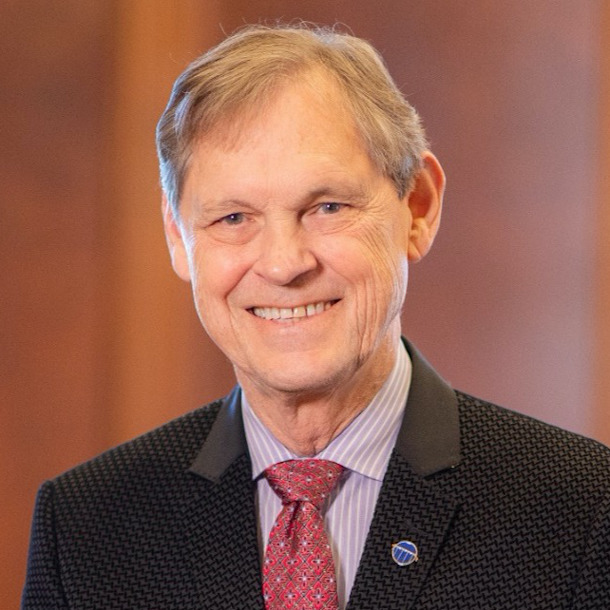
John L. Junkins, is University Distinguished Professor of Aerospace Engineering and holder of the Royce E. Wisenbaker Chair in Innovation at Texas A&M University. He is the Founding Director of the Hagler Institute for Advanced Study. The Texas A&M Institute for Advanced Study was officially renamed the Hagler Institute for Advanced Study in 2017 after benefactor Jon Hagler endowed the Institute with a $20 million gift. Starting in 2011, Junkins and Norman Augustine created the External Advisory Board that has been instrumental in the evolution of the Hagler Institute for Advanced Study.
Junkins recently graduated his 55th PhD student spawning 2 generations of professors and 3 generations of over 160 PhDs who play significant roles worldwide. He remains an active professor and principle investigator who currently directs 5 doctoral candidates and a post-doctoral researcher. His sponsorship exceeds $50 million in extramural funding.
He is a member of the National Academy of Engineering, the National Academy of Inventors, the International Academy of Astronautics, and an Honorary Fellow of the American Institute for Aeronautics and Astronautics (AIAA). Junkins is the author of over four-hundred papers and eight widely used technical books. His co-authored Analytical Mechanics of Aerospace Systems text won the 2014 Martin Summerfield Best Book Award, given annually by AIAA. He recently received the highest honor in his field, the Robert H. Goddard Astronautics Award (2019). The Hagler Institute has attracted over ninety internationally eminent scholars to Texas A&M and over $40 million of endowment to permanently secure the Institute.
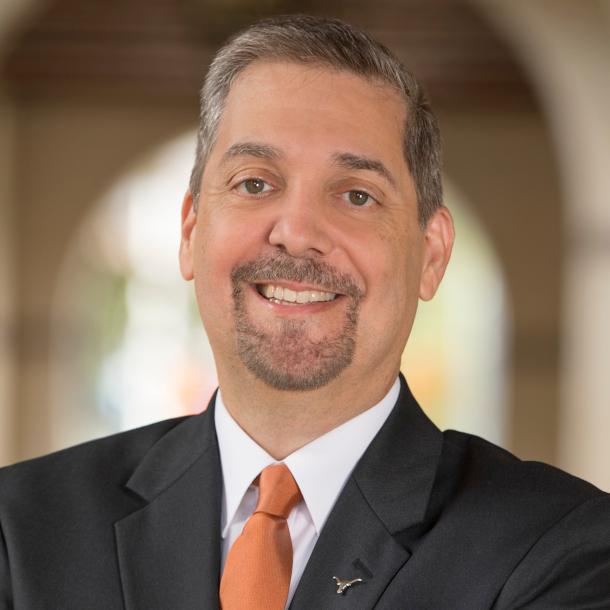

Shara McClure knows Texas health care. A native Texan and proud Texas A&M University graduate, she leads health care delivery operations for Blue Cross and Blue Shield of Texas (BCBSTX), which offers the broadest provider network in the state covering all 254 counties. Having represented multiple health plans, physician organizations, and hospitals prior to her tenure at BCBSTX, Shara’s unwavering commitment to both improve and protect the physical and financial health of Texas has bolstered her reputation as an executive thought leader.
Thanks to her wide range of experience in the industry, Shara brings invaluable leadership and expertise to some of BCBSTX’s most important business functions, such as Provider Network Management, Performance & Programs for commercial, government and individual product lines. This includes hospital, physician and ancillary provider contracting, communications, compliance, analytical decision support and value-based care.
Shara is passionate about using her platform to inspire women and young professionals to become leaders in their organizations. She is the chairperson of the company’s business resource group Women Improving the Strength of the Enterprise (WISE) and oversees WISE’s initiatives to promote career, community, commerce, and culture across Blue Cross and Blue Shield Plans in Texas, Illinois, New Mexico, Oklahoma, and Montana. She also represents the company as vice chair on the Board of Directors for TMA PracticeEdge, LLC in addition to serving on the board for the North Dallas Chamber of Commerce and IT’S TIME TEXAS.
Outside of the office, Shara is an active leader in the community. She serves on the board of directors for The Association of Former Students of Texas A&M University, graduated from the Dallas Regional Chamber’s Leadership Dallas program in 2017, and is a senior fellow of Houston’s American Leadership Forum. Shara recently received her Master of Public Health degree from George Washington University.
Shara and her husband Craig are proud parents to Melinda and Michael, both of whom followed in their mother’s footsteps at Texas A&M. She also models the way for a healthy lifestyle by exercising five days a week and enjoys spending time with her family, golfing, and traveling.
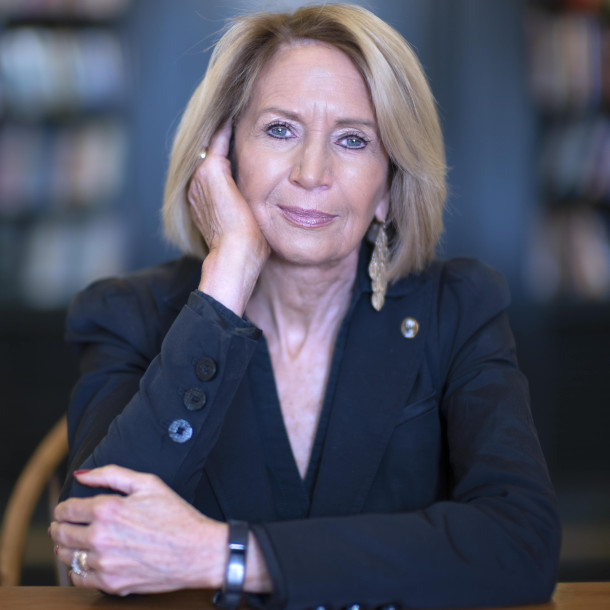
Marcia McNutt is a geophysicist and president of the National Academy of Sciences. From 2013 to 2016, she served as editor-in-chief of the Science journals. Prior to joining Science, she was director of the U.S. Geological Survey (USGS) from 2009 to 2013. During her tenure, the USGS responded to a number of major disasters, including earthquakes in Haiti, Chile, and Japan, and the Deepwater Horizon oil spill. McNutt led a team of government scientists and engineers at BP headquarters in Houston who helped contain the oil and cap the well. She directed the flow rate technical group that estimated the rate of oil discharge during the spill’s active phase. For her contributions, she was awarded the U.S. Coast Guard’s Meritorious Service Medal.
Before joining the USGS, McNutt served as president and chief executive officer of the Monterey Bay Aquarium Research Institute (MBARI), in Moss Landing, California. During her time at MBARI, the institution became a leader in developing biological and chemical sensors for remote ocean deployment, installed the first deep-sea cabled observatory in U.S. waters, and advanced the integration of artificial intelligence into autonomous underwater vehicles for complex undersea missions.
From 2000 to 2002, McNutt served as president of the American Geophysical Union (AGU). She was chair of the Board of Governors for Joint Oceanographic Institutions, responsible for operating the International Ocean Drilling Program’s vessel JOIDES Resolution and associated research programs.
McNutt began her academic career at the Massachusetts Institute of Technology (MIT), where she was the E.A. Griswold Professor of Geophysics and directed the Joint Program in Oceanography/Applied Ocean Science & Engineering, jointly offered by MIT and the Woods Hole Oceanographic Institution. Her research area is the dynamics of the upper mantle and lithosphere on geologic time scales, work that has taken her to distant continents and oceans for field observations. She is a veteran of more than a dozen deep-sea expeditions, on most of which she was chief or co-chief scientist.
McNutt received a B.A. in physics from Colorado College and her Ph.D. in Earth sciences at the Scripps Institution of Oceanography. She holds honorary doctoral degrees from the Colorado College, the University of Minnesota, Monmouth University, the Colorado School of Mines, University of Miami, Uppsala University, Michigan State University, Worcester Polytechnic Institute, George Washington University, Boston University, Texas A&M University, and Indiana University Bloomington. McNutt is a member of the National Academy of Engineering, the American Philosophical Society and the American Academy of Arts and Sciences, and a Foreign Member of the Royal Society, UK, the Russian Academy of Sciences, and the Chinese Academy of Sciences. She is a fellow of AGU, the Geological Society of America, the American Association for the Advancement of Science, and the International Association of Geodesy. In 1988, she was awarded AGU’s Macelwane Medal for research accomplishments by a young scientist, and she received the Maurice Ewing Medal in 2007 for her contributions to deep-sea exploration.

- founder, President, and CEO of Conceptual MindWorks, Inc., a biotechnology and medical informatics company, from start-up to 30 years of performance,
- community leader, contributing to successful education, health, and economic growth initiatives,
- recognized advocate, appointed by two Governors and three mayors to blue-ribbon boards and commissions.
Immediate past Chair of the Board of Regents of the Texas A&M University System, the second woman and the first Hispanic to serve in that position. The nine-member A&M Board of Regents has fiduciary responsibility for an operating budget of $6.1 billion and oversight of eleven universities and eight state agencies. Board of Directors Chair for Early Childhood Education Municipal Development Corporation which is responsible for the $32 million Pre-K 4 SA program implementation. Chair for UP Partnership (formerly P16 Council of Greater Bexar County). On organizing board and currently on the founding board for the Holdsworth Center, which strengthens the pipeline of public-school education leaders. Previous Chair of the San Antonio Hispanic Chamber of Commerce and previous Chair of the Board of Alamo Workforce Development (now Workforce Solutions Alamo). In 1999-2001, Chair of the Congressional Commission on the Advancement of Women and Minorities in Science, Engineering & Technology.
Honors: San Antonio Women’s Hall of Fame, Outstanding Alumni Award from Texas A&M College of Engineering, National Association of Women Business Owners Entrepreneurial Spirit Award, San Antonio SBA District Office Minority Small Businessperson of the Year.
Education: Texas A&M University, Bachelor of Science in Aerospace Engineering

Pawel Misztal, Ph.D.
Assistant Professor
The University at Texas at Austin
Video
Areas of Expertise:
Building Energy and Environments
Environmental and Water Resources Engineering
Educational Qualifications:
PostDoc, University of California at Berkeley, Environmental Science, Policy and Management, 2015
Ph.D., The University of Edinburgh, Chemistry, 2010
M.S., Maria Curie-Sklodowska University in Lublin, Poland, Chemistry, 2003
B.S., Maria Curie-Sklodowska University in Lublin, Poland, Chemistry and Physics, 2001
Technical Interests:
Chemical exposures and occupant health; novel air quality measurements; human volatile biomarkers; volatile and semivolatile organic compounds; aerosols; chemistry of microbiomes; and engineering solutions for indoor air quality.

Kim Orth, Ph.D. (NAS)
W.W. Caruth Jr. Scholar in Biomedical Research
Earl A. Forsythe Chair in Biomedical Science
UT Southwestern Medical Center
Kim Orth is a biochemist deciphering the mechanisms used by bacterial pathogens to manipulate the host. She is recognized for her elucidation of novel biochemical mechanisms that bacterial effectors use to modify host proteins including Ser/Thr acetylation and AMPylation. Her group then discovered the AMPylation is also used by host cells to maintain homeostasis. She enjoys mentoring scientists and helping them learn how to use rigorous reductionist methodology for the discovery of new science. Orth graduated from Texas A &M University with a Bachelor in biochemistry, UCLA with a Masters in biological chemistry and UT Southwestern Medical Center with a PhD in biochemistry. She did postdoctoral fellowships at University of Michigan while becoming the proud mother of two. In 2001, she joined the faculty in the Department of Molecular Biology at UT Southwestern Medical Center where she is currently a Professor. In 2015, Orth became an Investigator for the Howard Hughes Medical Institute. Orth has received awards including the 2011 Edith & Peter O’Donnell Award in Science from TAMEST, Arnold and Mabel Beckman Young Investigator Award, Burroughs Wellcome Investigator in Pathogenesis of Infectious Disease, ASBMB Merck Award and Welch Foundation Norman Hackerman Award in Chemical Science. Orth is a member of the American Academy of Microbiology and of the National Academy of Sciences.
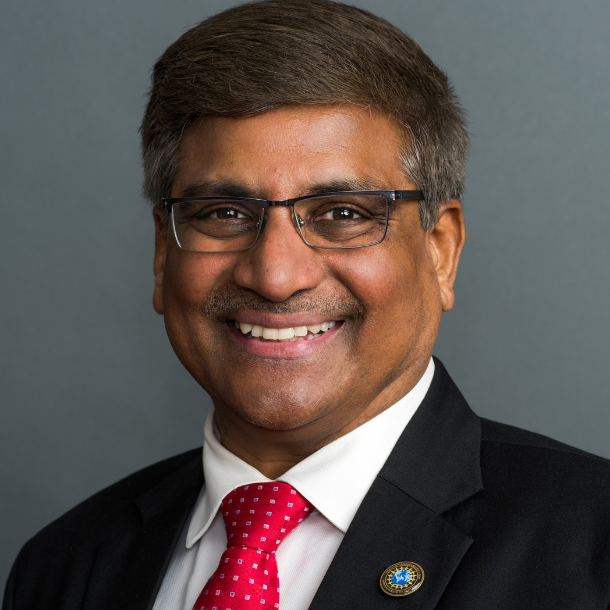
The Honorable Sethuraman Panchanathan is a computer scientist and engineer and the 15th director of the U.S. National Science Foundation (NSF). Panchanathan was nominated to this position by the President of the United States in 2019 and subsequently unanimously confirmed by the U.S. Senate on June 18, 2020. NSF is an $8.5B independent federal agency and the only government agency charged with advancing all fields of scientific discovery, technological innovation and STEM education.
Panchanathan is a leader in science, engineering and education with more than three decades of experience. He has a distinguished career in both higher education and government, where he has designed and built knowledge enterprises, which advance research innovation, strategic partnerships, entrepreneurship, global development and economic growth.
Panchanathan previously served as the executive vice president of the Arizona State University (ASU) Knowledge Enterprise, where he was also chief research and innovation officer. He was also the founder and director of the Center for Cognitive Ubiquitous Computing at ASU. Under his leadership, ASU increased research performance fivefold, earning recognition as the fastest growing and most innovative research university in the U.S.
Prior to joining NSF, Panchanathan served on the National Science Board as chair of the Committee on Strategy and as a member of the External Engagement and National Science and Engineering Policy committees. Additionally, he served on the National Advisory Council on Innovation and Entrepreneurship. He was chair of the Council on Research of the Association of Public and Land-grant Universities and co-chair of the Extreme Innovation Taskforce of the Global Federation of Competitiveness Councils. Arizona’s Governor appointed Panchanathan as senior advisor for science and technology in 2018. He was the editor-in-chief of the IEEE Multimedia Magazine and editor/associate editor of several international journals.
Panchanathan’s scientific contributions have advanced the areas of human-centered multimedia computing, haptic user interfaces, person-centered tools and ubiquitous computing technologies for enhancing the quality of life for individuals with different abilities; machine learning for multimedia applications; medical image processing; and media processor designs. He has published close to 500 articles in refereed journals and conference proceedings, and has mentored more than 150 graduate students, postdocs, research engineers and research scientists, many now occupy leading positions in academia and industry.
For his scientific contributions, Panchanathan has received numerous awards, such as Distinguished Alumnus Awards and the Governor’s Innovator of the Year for Academia Award for his development of information technology centric assistive and rehabilitative environments to assist individuals with visual impairments.
Panchanathan is a fellow of the National Academy of Inventors, where he also served as vice president for strategic initiatives. He is also a fellow of the American Association for the Advancement of Science, the Canadian Academy of Engineering, the Association for Computing Machinery, the Institute of Electrical and Electronics Engineers and the Society of Optical Engineering.
Panchanathan is married to Sarada “Soumya” Panchanathan, an academic pediatrician and informatician, who has taught medical students, pediatric residents and informatics fellows. They have two adult children, Amritha and Roshan.
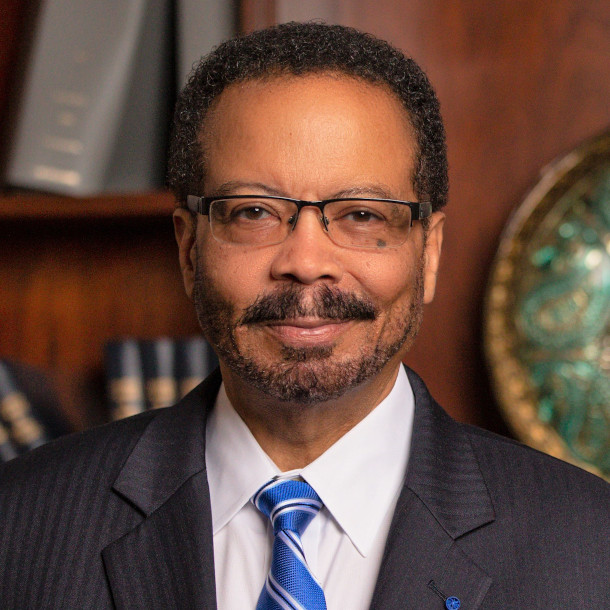
Roderic Pettigrew, M.D., Ph.D. (NAM, NAE)
CEO, EnHealth, Texas A&M Health and Texas A&M University College of Engineering
Robert A. Welch Professor and Inaugural Dean for EnMed, Colleges of Medicine, Engineering
Texas A&M University and Houston Methodist Hospital
Roderic I. Pettigrew, PhD, MD, serves as chief executive officer (CEO) of Engineering Health (EnHealth) and executive dean for Engineering Medicine (EnMed) at Texas A&M University, in partnership with Houston Methodist Hospital. Dr. Pettigrew also holds the endowed Robert A. Welch Chair in Medicine. EnHealth is the nation’s first comprehensive educational program to fully integrate engineering into all health-related disciplines. EnMed is the nation’s first four-year, fully-integrated engineering and medical education curriculum leading to both an MD and master’s degree in engineering in four years.
An internationally recognized leader in biomedical imaging and bioengineering, Dr. Pettigrew served for 15 years as the founding director for the National Institute of Biomedical Imaging and Bioengineering (NIBIB) at National Institutes of Health (NIH). Prior to his appointment at the NIH, he joined Emory University School of Medicine as professor of radiology and medicine (cardiology) and Georgia Institute of Technology as professor of bioengineering. He is known for pioneering work in four-dimensional imaging of the cardiovascular system using magnetic resonance imaging (MRI).
Dr. Pettigrew has been elected to membership in the National Academy of Medicine, the National Academy of Engineering (NAE), the National Academy of Inventors, the American Academy of Arts and Sciences, and the National Academy of Sciences, India. His awards include gold medals from the Academy of Radiology Research and the Radiological Society of North America, the Arthur M. Bueche Award from the NAE and the Vannevar Bush Award from the National Science Board.
He is a graduate of Morehouse College as a Merrill Scholar (BS in physics), Massachusetts Institute of Technology (MIT) as a Whitaker HST fellow (PhD in radiation physics) , the Leonard M. Miller School of Medicine at the University of Miami ( MD), and completed residency training at UC-San Diego.

Robert Phillips, M.D. (NAM)
Executive Director
The Center for Professionalism & Value in Health Care
Robert Phillips is a graduate of the Missouri University of Science and Technology and the University of Florida College of Medicine where he graduated with honors for special distinction. He trained in family medicine at the University of Missouri, followed by a fellowship in health services research and public health. Dr. Phillips was the Director of the Robert Graham Center in Washington DC from 2004-2012. In 2012, he moved to the American Board of Family Medicine (ABFM) as Vice President for Research and Policy and in 2018, Dr. Phillips was named the founding Executive Director of the Center for Professionalism and Value in Health Care.
Dr. Phillips currently practices part-time in a community-based residency program and is a Professor of Family Medicine at Georgetown University and Virginia Commonwealth University. He also has faculty appointment at George Washington University and Harvard Medical School. He previously served on the American Medical Association’s Council on Medical Education, as president of the National Residency Matching Program, vice chair of the US Council on Graduate Medical Education, and co-chair of Population Health on the National Committee for Vital and Health Statistics. He served as a Fulbright Specialist to the Netherlands in 2012 and New Zealand in 2016. A nationally recognized leader on primary care policy and health care reform, Dr. Phillips was elected to the National Academy of Medicine in 2010 and currently chairs the NAM Membership Committee.

Renowned as a cancer surgeon, researcher, professor and hospital administrator, Dr. Pisters earned his medical degree at Schulich School of Medicine and Dentistry at the University of Western Ontario in Canada. He completed his master’s degree in health care administration at Harvard University School of Public Health and did his postgraduate work at Memorial Sloan Kettering Cancer Center in New York, where he was chief administrative fellow. He earned designation as a Certified Physician Executive in 2014 and was named a fellow of both the American College of Healthcare Executives and the American College of Surgeons.
Most recently, Dr. Pisters led more than 14,000 employees and 1,700 physicians as president and chief executive officer of the University Health Network (UHN) in Toronto, Canada. UHN is Canada’s largest academic medical center. Affiliated with the University of Toronto, which recently ranked as the 12th most outstanding academic institution in the world, UHN has a $400 million research enterprise. It advances studies in cardiology, transplantation, neurosciences, oncology, surgical innovation, infectious diseases, genomic medicine and rehabilitation medicine. In Toronto, Dr. Pisters also served as president and chief executive officer of The Michener Institute of Education and as a professor of Surgery at the University of Toronto.
Originally arriving at MD Anderson in 1994 from a surgery instructor position at Memorial Sloan Kettering, he joined the faculty as assistant professor of Surgery. He rose to full professor with tenure in 2004 and was repeatedly honored during his two decades at MD Anderson, earning two Fellows Outstanding Teacher awards and three Faculty Excellence awards. Dr. Pisters became medical director and eventually vice president for MD Anderson’s regional care system, comprising multiple Houston-area locations. He previously served as clinical consultant for the Center for Global Oncology (now MD Anderson Cancer Network®), section chief for Sarcoma Surgery and assistant medical director of the Sarcoma Center. He specialized in helping patients with sarcomas and gastrointestinal (GI) cancers and remains a board-certified surgeon.
Dr. Pisters is a member of more than two dozen national organizations and currently serves or has served in leadership positions on the advisory boards of numerous others, including several for the National Cancer Institute. He is on the editorial board of the Journal of Clinical Oncology and Surgery and serves as a reviewer for multiple others. His own research, focused on sarcomas, GI cancers and other malignancies, has resulted in nearly 400 peer-reviewed and additional articles, book chapters, teaching aids and other publications.
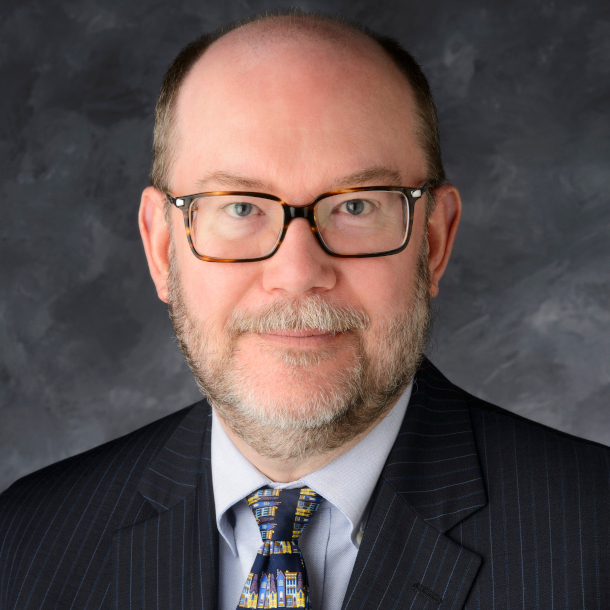
Before joining Microsoft, he was the founding director of the Renaissance Computing Institute (RENCI) at the University of North Carolina at Chapel Hill, with joint faculty appointments at Duke and North Carolina State University. At UNC-CH, he also served as Chancellor’s Eminent Professor and Vice Chancellor for Information Technology. Prior to that, he was Gutgsell Professor and Head of the Department of Computer Science at the University of Illinois at Urbana-Champaign (UIUC), as well as Director of the National Center for Supercomputing Applications (NCSA). He was also one of the principal investigators and chief architect for the NSF TeraGrid, which became NSF XSEDE.
Dr. Reed is currently chair of the U.S. National Science Board (NSB), which provides oversight for the U.S. National Science Foundation. As a member of the NSB, he has chaired the Committee on Awards and Facilities, and has served on a variety of other NSB committees. He currently chairs the Department of Energy’s Advanced Scientific Computing Advisory Committee (ASCAC), chairs the National Academies Panel on Computational Sciences at the Army Research Laboratory, serves as a member of the Scientific Advisory Committee for Argonne National Laboratory, serves as a member of the National Renewable Energy Laboratory’s Technical Review Panel, and serves as a member of the advisory board for the Engineering Research Visioning Alliance (ERVA). He is the outgoing chair of AAAS section T (Information, Computing, and Communication) and is a member of the AAAS Council.
Dr. Reed has served as a member of the U.S. President’s Council of Advisors on Science and Technology (PCAST) and the U.S. President’s Information Technology Advisory Committee (PITAC). He has served on the National Academies Board on Global Science and Technology, the International Telecommunications Union CTO Council, the Advisory Committee for Electronic Records for the National Archives, and the ICANN Generic Names Supporting Organization Council. He is the past chair of the Board of Directors of the Computing Research Association (CRA), which represents PhD-granting computer science departments in North America, and currently serves on its government affairs committee. As chair of CRA, he was one of the co-founders of the Computing Community Consortium (CCC), responsible for envisioning new ideas on computing research.
Dr. Reed is a Fellow of the ACM, the IEEE, and the AAAS. He received his B.S. from Missouri University of Science and Technology and his M.S. and Ph.D. from Purdue University, all in computer science.
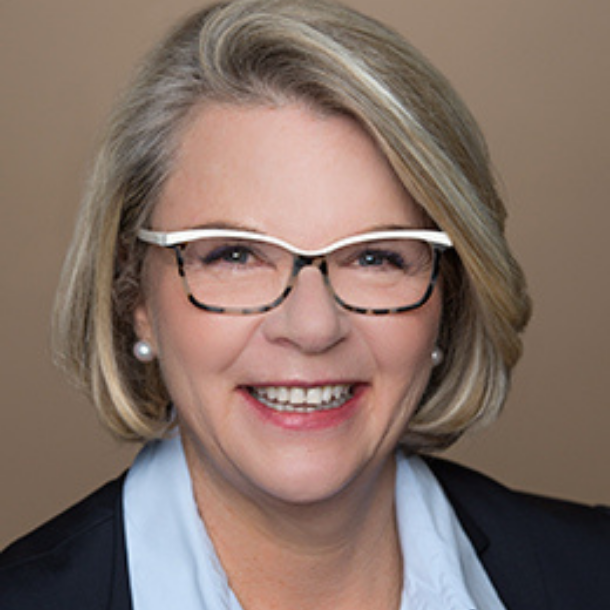
Margaret Spellings is the President and CEO of Texas 2036, a nonprofit organization building long-term, data-driven strategies to secure Texas’ prosperity through our state’s bicentennial and beyond. She served in the George W. Bush Administration both as Assistant to the President for Domestic Policy in the White House and as US Secretary of Education. She has also been the President of the Bush Presidential Center in Dallas and the CEO of the US Chamber of Commerce Foundation in addition to running her own successful public policy consulting firm in Washington, DC. She most recently served as the President of the University of North Carolina System. She is a graduate and distinguished alumna of the University of Houston.


